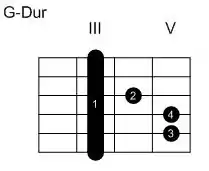barre
English

Danish
Pronunciation
- IPA(key): /barə/, [ˈb̥ɑːɑ]
Inflection
French
Etymology
From Middle French barre, from Old French barre (“beam, bar, gate, barrier”), from Vulgar Latin *barra, of uncertain origin. Perhaps from Old Frankish *bara (“bar, beam, barrier, fence”), from Proto-Germanic *barō (“beam, bar, barrier”), from Proto-Indo-European *bʰAr- (“log, board, plank”). If so, then cognate with Old High German para, bara (“bar, beam, one's cherished land”), Middle Dutch bāre, baer (“bar, barrier, rail”), Old Frisian ber (“attack, assault”), Swedish bärling (“a spoke”), Norwegian berling (“a small bar in a vehicle, rod”), Latin forus (“gangway, plank”), Russian забо́р (zabór, “fencing, paling, fence”), Ancient Greek φάρος (pháros, “piece of land, furrow, marker, beacon, lighthouse”).
Alternative etymology derives Old French barre and Vulgar Latin *barra from a Celtic source related to Breton barri (“branch, twig”).
Pronunciation
- IPA(key): /baʁ/, /bɑʁ/
audio (file)
Noun
barre f (plural barres)
- bar, cake, ingot
- (typography) Clipping of barre oblique: the slash mark ⟨/⟩
- (typography) Clipping of barre de fraction: the fraction slash ⟨⁄⟩
- (typography) Clipping of barre inscrite: the bar diacritics ⟨̵⟩, ⟨̶⟩, ⟨̷⟩, and ⟨̸⟩
- (typography) Clipping of barre verticale: the pipe mark ⟨|⟩
- (typography, improper) Clipping of barre oblique inversée: the backslash ⟨\⟩
- (nautical) helm, tiller
- (heraldry) bend sinister
Related terms
Further reading
- “barre” in le Trésor de la langue française informatisé (The Digitized Treasury of the French Language).
Latin
Norman
Pronunciation
Audio (Jersey) (file)
Norwegian Bokmål
Derived terms
Norwegian Nynorsk
Derived terms
Old French
Noun
barre f (oblique plural barres, nominative singular barre, nominative plural barres)
- bar (solid, more or less rigid object with a uniform cross-section smaller than its length)
- 12th Century, Unknown, Raoul de Cambrai:
- Elle a l'us clos et fermet a la barre.
- She shut the door and closed it using the bar
-